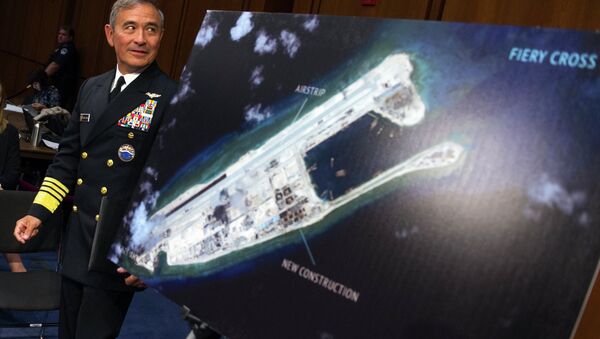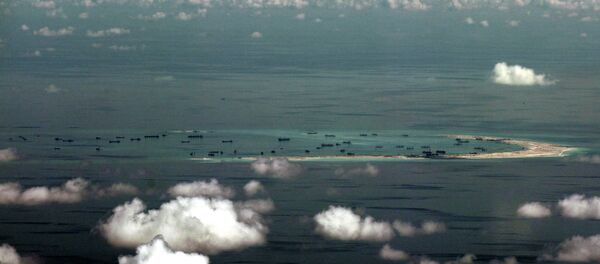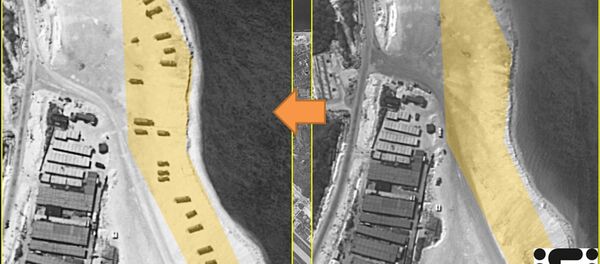Last October, the Pentagon conducted its first FON in the South China Sea, sending the USS Lassen within the 12-mile territorial limit of Beijing’s artificial islands in the Spratly archipelago. The move elicited outrage from Chinese officials.
In response to Beijing’s deployment of missile systems into the region, the US Navy has stressed that it plans to increase its FON operations.
"We will be doing them more, and we’ll be doing them with greater complexity in the future…and we’ll fly, sail and operate wherever international law allows," Admiral Harry Harris, head of the US Navy’s Pacific Command, told the US House Armed Services Committee on Wednesday.
"We must continue to operate in the South China Sea to demonstrate that that water space and the air above it is international."
During his address, the admiral also accused China of using the artificial islands to "militarize" the region.
"[China is] clearly militarizing the South China Sea," he said. "You’ve have to believe in a flat Earth to think otherwise."
Beijing has maintained that it has every right to build within what it considers to be its own territory, and that the islands will be used primarily for humanitarian purposes.
While FON operations by patrol ships and surveillance planes have already escalated tensions, Harris indicated that the Pentagon could increase its military presence in the region.
"We could consider putting another (attack) submarine out there, we could put additional destroyers forward…there are a lot of things we could do, short of putting a full carrier strike group in the Western Pacific," Harris said.
The admiral’s comments come amid an official visit to Washington by Chinese Foreign Minister Wang Yi, who earlier this week stressed the need for calm.
"The South China Sea islands have historically been China’s territory. China has a right to uphold its territorial integrity and lawful, legitimate maritime rights and interests," he said during a joint press conference with US Secretary of State John Kerry.
"At the same time, we are committed to resolving the disputes through dialogue and negotiation in a peaceful way."
China lays claim to most of the highly disputed region, and there are overlapping claims by Vietnam, Malaysia, the Philippines, Brunei, and Taiwan. Nearly $5 trillion in trade passes through the South China Sea annually.





